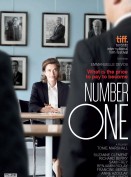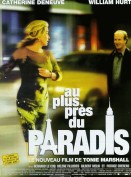
Tonie Marshall
Films in our catalogue
NUMBER ONE
Through hard work, Emmanuelle Blachey, a brilliant and voluntary engineer, has earned top position at the executive committee of Trident, the French leading energy company. Married for 20 years to a caring man, mother of 2 children, Emmanuelle’s success (...)
Nearest to heaven
One evening, a woman meets a man she used to know when they were students. We realize that he was in love with her but that she loved someone else. When the name "Philippe", her first love, is uttered it acts as a sort of revelation and she ends up in a (...)
Biography
She is the daughter of the French actress Micheline Presle and the American actor/director William Marshall (II), who appeared in such 40s and 50s films as "Knute Rockne, All American." As a child, Tonie saw her mother "doing movies and getting invited everywhere", and the life of an actress impressed her. Tonie decided on the profession for herself and went on to appear in over fifteen films and TV mini-series since the late 70s, in that time working with such acclaimed directors as Claude Zidi and with such stars as Daniel Auteuil and Richard Bohringer. In 1988, she appeared in the French TV miniseries "Palace" (1988) (mini) starring Michel Blanc. But making a living as an actress sometimes meant accepting roles that were less satisfying. Looking for a transition out of acting, she began a career recording voiceovers for radio commercials, where she was able to work in between the worlds of acting and writing, and eventually got into writing scripts. She debuted as writer/director with police comedy Pentimento (1989). Four years later she wrote and directed Pas très catholique (1994) which was very well received in France and was promoted at Festivals in the US as "Something's Fishy". Her next film as a director was Enfants de salaud (1996) (promoted in the US as "Bastard Brood") which starred Nathalie Baye and told the story of a woman who having never known her father, discovers that he is a monstrous cannibal accused of numerous crimes. But it was Vénus beauté (institut) (1999) that established Marshall as a force in France's film industry when it swept the 1999 Cesars, the French equivalent of the Academy Awards.

